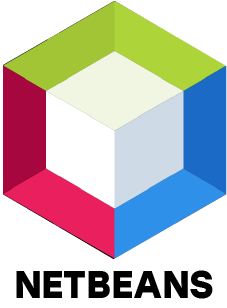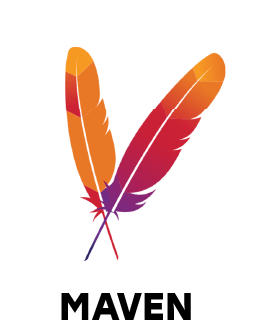ACTE Online Java training courses, You can learn Java programming fundamentals, best practices, and design patterns. Gain the skills you need to design scalable, high-performance Java applications with Spring and Hibernate, or build SOAP and RESTful web services. Attend a Java course online and grow your Java programming skills.
Java continues to be one of the most widely used programming languages. With its rich API, powerful development tools, and extensive open source libraries, Java remains a programming language of choice for major corporations around the globe.
Yes Java is good programming language for IT career. ... So still there is big demand for Java Programmers in all over the world. Look this image: To become good Java Developer one must improve knowledge in the following areas to work on Java Web/Enterprise Application projects.
One should have the competent skills to get an employment with IT companies as many companies are looking for the professionals, who can manage multiple projects in J2EE and augments the industrial efficiency. The average pay for a Java Programmer is Rs. 391,797 per year.
Though there are times when Java development slows down, Java has responded well. ... You can get tons of Jobs opportunity by learning Java programming language; you can develop core Java-based server-side applications, J2EE web and enterprise applications, and can even go for Android-based mobile application development.
We are happy and proud to say that we have strong relationship with over 700+ small, mid-sized and MNCs. Many of these companies have openings for Java analyst. Moreover, we have a very active placement cell that provides 100% placement assistance to our students. The cell also contributes by training students in mock interviews and discussions even after the course completion.
The programs that we are writing are very similar to their counterparts in several other languages, so our choice of language is not crucial. We use Java because it is widely available, widely used, embraces a full set of modern abstractions, and has a variety of automatic checks for mistakes in programs, so it works well for students learning to program. There is no perfect language and you certainly will find yourself programming in other languages in the future.
You must know at least the basics of how to use a computer, and should be able to start a command line shell. If you are new to programming then Introduction to Programming is strongly recommended. If you already know C++ or any other Object-Oriented language, Java should be easy to pick up.
Yes, Although Java has evolved from C and C++, but these languages are not a pre-requisite to learn Java. ... Then again, if you are able to understand Object Oriented Programming and master the usage of Java, then the book Introduction to Algorithms by CLRS is more than enough to keep up your interest in coding!
Our courseware is designed to give a hands-on approach to the students in Java. The course is made up of theoretical classes that teach the basics of each module followed by high-intensity practical sessions reflecting the current challenges and needs of the industry that will demand the students’ time and commitment.
Java Is Very Fast
By learning the Java programming language in 2020, you will enter the world of JVM. This world is very fast. Don't listen to those who still claim that Java is slow compared to compiled languages like C and C++. The so-called slowness of Java is a myth that has lived on.
If you have some familiarity with C/C++ programming, then it is easy to learn to code in Java. You can probably start writing programs in a few weeks. If you are not at all familiar with object-oriented programming languages, it will be anywhere between 2 and 6 months before you write bigger programs using Java.
Opportunities for career for a Java programmer / developer are excellent. At this juncture, it is important to remember that the role of a Java developer is much more than just Java coding. In most organizations, the development of the software is an integral part of the engineering/business process.
However, your qualifications, experience, and interest also matter. With the right talent and combination, there is a good chance that an experienced Java developer can advance into senior technical or management roles in the future.
Top Java Development Skills in Demand Right Now
Java remains one of the most popular programming languages and was placed on the number one position by the GitHub community in 2019. It is, therefore, reasonable to assume that Java will continue to grow in popularity and Java developers will see even more demand from employers in the future.
In order to create high-quality products, developers need to constantly monitor the release of the latest Java tools and upgrade one’s technical skills and knowledge. Below we present the top-5 Java skills that will become an absolute must for the Java developers in 2020 and beyond.
Excellent Knowledge of Java 8
Despite the release of Java 13 in September 2019, there are many developers out there who are still not comfortable with Java 8 and its features. So for aspiring Java developers, solid knowledge and experience with Java 8 will become a must.
Some of the most useful Java 8 features include:
- Default and static methods for the creation of interfaces with method implementation
- A functional interface that has only one abstract method and helps developers avoid the addition of other abstract methods
- Lambda expressions that help instantiate functional interfaces
- Java Stream API for enabling parallel and sequential execution
- New methods added in Collection API
All these features make the Java 8 version highly suitable for functional programming which is a big trend these days. Functional programming allows concurrency and code brevity and helps create high-load applications with highly optimized code. Thus, it is safe to assume that one of the core’s Java 8 benefits is its applicability to functional programming execution.
As well, Java 8 set the stage for machine code optimization which allowed the optimization of approaches for other languages like Scala, Kotlin, and Grails.
Experience With Testing
Unit testing in Java is a rather controversial topic. Some developers claim that writing unit tests is a waste of time but we strongly believe that the skill of unit testing is obligatory for any professional Java developer.
Unit testing allows for the testing of individual code units and thus ensures that the final product will function with no bugs or errors. So if a developer wants to upgrade their skills and knowledge, learning how to use the most popular and efficient testing tools is a must.
The primary testing framework to get well acquainted with would be the JUnit 5 Library known to every Java developer. Other tools include:
- Robot Framework
- Mockito
- PowerMock
Apart from unit testing, a good Java developer should not forget about other testing methods (system testing, acceptance testing, integration testing etc.) in order to perform a 360-degree software test and ensure there are no errors, bugs, or critical malfunctions. The key thing to remember about testing is: small changes lead to big results. If you do not hesitate to invest time and effort into unit testing, you will be amazed at the increased quality of your work.
Adoption of DevOps
Though not an obligatory point, the exploration of DevOps and its principles may be beneficial both for you as a developer and the company that you work in. The flexibility and organization of DevOps processes allow companies to optimize the quality of its product and streamline the operations while also increasing the transparency of the processes.
DevOps in Java is basically the application of DevOps to Java development. It implies:
- Continuous delivery and integration
- Work with microservices instead of monoliths
- Infrastructure as a code
- Automated testing
DevOps is a vast area so one needs to invest a significant amount of time and resources into studying it. But if you are a Java developer and you wish to manage the environment, learning DevOps will be useful as it will allow you to become a DevOps Engineer in the future. But if you don’t want to become a DevOps Engineer or your company does not want to adopt it, that’s fine too. Just keep in mind that DevOps is growing in popularity and is steadily becoming the next big trend in the Java community.
Knowledge of Java Libraries and APIs
With Java being the number one programming language in the developers’ community, it comes as no surprise that it has a massive amount of available APIs and libraries to work with. These tools significantly facilitate the development process and allow developers to swiftly create robust software. Below we list a basic set of tools that any good Java developer knows and can confidently use. These tools help to quickly assemble an app and efficiently manage the data and its storage:
- Gradle (app assemblement tool)
- Maven (a bit outdated but still popular, also used for assembling an app)
- Java 8 Standard Packages
- Spring Frameworks
- JPA ORM (Hibernate, TopLink)
- NoSQL Databases (MongoDB, Cassandra)
As for the APIs, in order to work with the primary Java API, a developer needs to have a solid knowledge of OpenJDK, Android, Oracle, IS2T.
A great advantage of these tools is that all of them come with detailed and informative documentation. As well, developers can always get support from the community which is also a big benefit.
Solid Knowledge of Spring and Spring Boot
- Spring Framework is the most used framework for creating Java-based applications so it is essential that a developer knows his way around it.
- One of the key advantages of Spring is dependency injection that allows for the creation of loosely coupled apps and grants a great amount of flexibility to developers. As well, Spring is very light-weight, supports XML and annotation configurations, and also enables declarative programming. So if you want to master your Java development skills, you must also master the deployment of Spring.
- Spring Boot is a Spring iteration which is a service-friendly tool for quick application deployment. It is safe to say that Spring Boot uses Spring as the base and builds its own features upon it. While Spring is focused on flexibility, Spring Boot helps shorten the code and facilitates the development process.
- It offers developers production-ready features, helps create standalone apps and is overall easier to launch and manage. Spring Boot is great for microservices and applications that need to be quickly developed as it allows fast and easy setup and app launch for different environments ((production, test, quality, CI/CD). Recently, a Spring Boot 2 version was released so Java developers might want to explore and learn it.
- As well, both Spring and Spring Boot expanded with opportunities for react programming which is another hot trend in the development community. Spring 5, for example, now has a WebFlux for realizing the reactive approach towards programming and resolution of the complex distributed systems.
Experience With Big Data
Same as DevOps and functional programming, Big Data is a big trend that developers need to follow and adopt in order to correspond to the market’s demands. So the key tools that a professional Java developers can become familiar with are:
- Apache Spark
- Apache Kafka
- Hadoop (for batch data processing)
Apache Spark is a distributed framework for Big Data processing that provides native bindings for Java. This framework quickly became immensely popular due to its features and performance and is now the most preferred tool for work with Big Data in the Java community. Apache Spark can run in a standalone cluster mode and for that, you will need the Apache Spark framework and a JVM only (for each machine in the cluster). As well, Spark is incredibly swift and has a very user-friendly Spark API.
Hadoop is a data-storing framework which is also well-known to Java developers. Though it falls short of execution speed compared to Spark, Hadoop remains one of the most popular tools for work with Big Data. This is also due to the fact that Hadoop (and similar solutions) have a big number of plugins that allow for the efficient resolution of Big Data processing tasks and overall optimize Hadoop performance (including the support of the stream real-time processing).
Final Word
With its growing popularity, Java seems to have a steady future ahead. So if a developer wishes to fit into the ever-changing environment of software development, he needs to follow the latest development trends and constantly master one’s skills in order to match the requirements of the clients and the market.








































